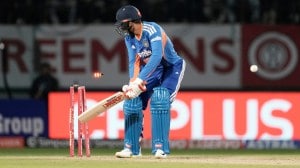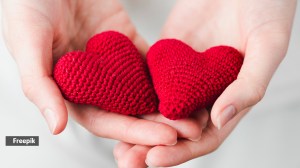Two of a kind get syncing feeling
Sharing first names, age and hometown, Davydova and Ermakova now share gold medals in two straight Olympics.

Anastasia Davydova and Anastasia Ermakova share the same first name, age, height, weight and hometown. The Russian synchronised swimmers also now share duet gold medals in two straight Olympics.
Performing a perfect free routine to the 8220;Peer Gynt Suite8221; before a near capacity crowd at the Water Cube on Wednesday, Davydova and Ermakova won with a combined 99.251 points. The pair received all perfect 10s for technical merit.
8220;Competition makes you achieve things you never thought possible,8221; Ermakova said though a translator. 8220;We waited four years for this gold and a whole row of 10s was our crowning achievement.8221;
Gemma Mengual and Andrea Fuentes of Spain took the silver medal with 98.334 points and Saho Harada and Emiko Suzuki of Japan took the bronze with 97.167.
8220;Athens was our first Olympics and your first gold is probably the high point of your entire life,8221; Davydova said. 8220;These last four years, it was harder to train, because when you have that status it seems like there is nothing left to strive for. But we were aware that we needed to prove ourselves again.8221;
Twin sisters Jiang Tingting and Jiang Wenwen of China settled for fourth with 96.334.
The final results were determined by the sum of the free routine final score and the technical routine score from Monday8217;s preliminary. The American pair of Christina Jones and Andrea Nott finished fifth.
Wearing gold-backed suits to fit their golden expectations, the Anastasias matched the high flute notes of Edvard Grieg8217;s music with perfectly timed twirls and synchronised spins of sheer beauty. On one move, the pair looked like a single body with four limbs sticking out of the water, each one moving in unison.
8220;It was a very serious competition. The Spanish girls, especially, were very, very strong competitors,8221; Davydova said. 8220;We knew no one was going to give us the gold medal on a silver plate.8221;
Fans displaying Russian banners clapped along and chanted encouragement and Davydova and Ermakova formed a celebratory embrace while still in the water.
Davydova and Ermakova are both 5-foot-7 tall, weigh 55 kilograms and hail from Moscow. The duo has been competing together for 10 years, beginning as juniors. They had to wait until Sydney 2000 winners Olga Brusnikina and Maria Kiseleva retired before they became Russia8217;s top pair.
Mengual swept the solo and duet titles at the European Championships in March, but the Spanish synchro standout had never won an Olympic medal before. Fuentes stepped in following the retirement of Paola Tirados.
8220;It was a long road to reach this Olympic medal. It8217;s been hard work,8221; Mengual said. 8220;Our goal was to do our maximum, and we were near the Russians, so we reached our goal. The difficulty nowadays in this sport has to do with speed. You have to be quicker and higher. You see that with the Anastasias. They8217;re not only perfect in technical aspects.8221;
Japan has won a medal in synchro in every Olympics since the discipline was introduced at the 1984 Los Angeles Games, and this was the country8217;s 12th medal overall.
- 01
- 02
- 03
- 04
- 05































